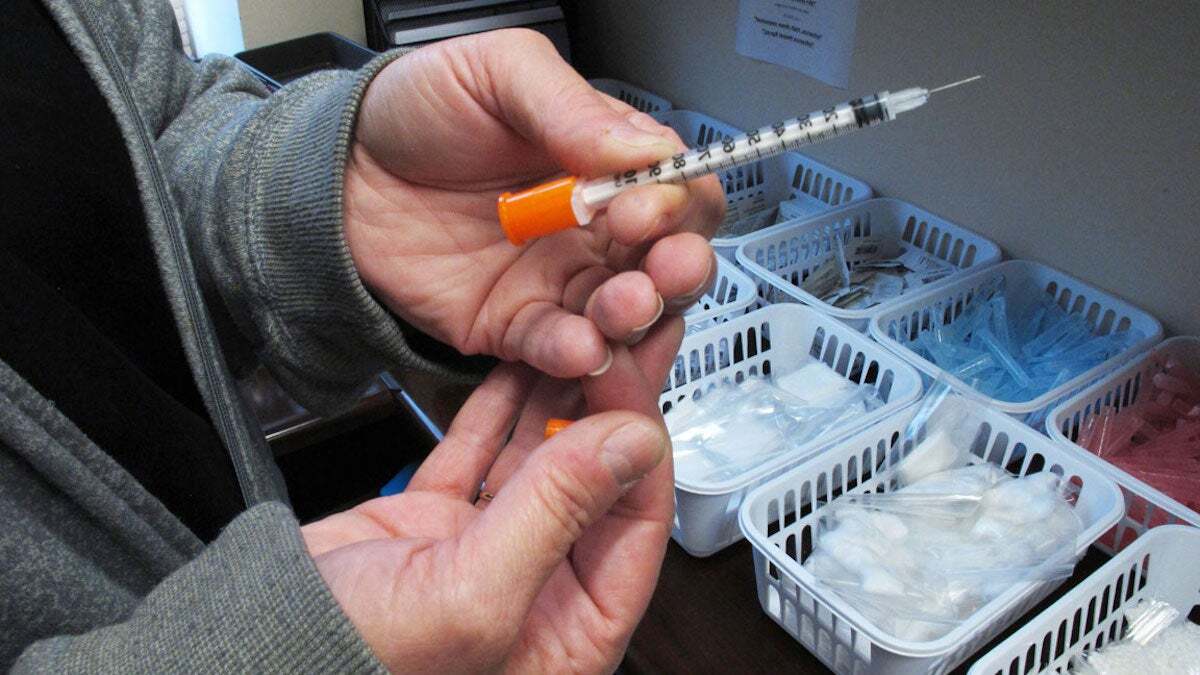
Needle exchange programs, also known as syringe exchange programs, provide clean needles to people who inject drugs. These initiatives aim to reduce the spread of infectious diseases like HIV and hepatitis C. But do they really work? Yes, they do. Studies show that these programs significantly lower infection rates and encourage safer practices. They also offer a gateway to addiction treatment and other health services. Critics argue that they enable drug use, but evidence suggests otherwise. By focusing on harm reduction, needle exchange programs save lives and improve community health. Let's explore 24 facts that highlight their impact and importance.
What Are Needle Exchange Programs?
Needle exchange programs (NEPs) provide clean needles to people who inject drugs. These initiatives aim to reduce the spread of infectious diseases and offer support services.
- NEPs help prevent the transmission of HIV and hepatitis C by providing sterile needles.
- They often offer additional services like HIV testing, counseling, and referrals to treatment programs.
- NEPs can reduce the number of discarded needles in public spaces, making communities safer.
- These programs are sometimes called syringe exchange programs (SEPs) or needle-syringe programs (NSPs).
How Do Needle Exchange Programs Work?
Understanding the mechanics of NEPs can clarify their importance. They operate on a simple yet effective model.
- Participants exchange used needles for new, sterile ones.
- Many NEPs operate on a one-for-one basis, meaning one used needle is exchanged for one new needle.
- Some programs provide additional supplies like alcohol swabs, cotton balls, and disposal containers.
- Confidentiality is a key component, ensuring participants feel safe using the service.
Benefits of Needle Exchange Programs
The advantages of NEPs extend beyond just providing clean needles. They offer a range of benefits to individuals and communities.
- NEPs reduce the risk of needle-sharing, which is a major cause of disease transmission.
- They provide a point of contact for healthcare services, helping users access medical care.
- NEPs can decrease the stigma associated with drug use by offering non-judgmental support.
- They often distribute naloxone, a medication that can reverse opioid overdoses.
Controversies Surrounding Needle Exchange Programs
Despite their benefits, NEPs are not without controversy. Some people have concerns about these programs.
- Critics argue that NEPs may enable drug use by providing the necessary tools.
- Others worry about the potential for increased drug-related crime in areas with NEPs.
- Some communities resist NEPs due to the stigma associated with drug use.
- However, research shows that NEPs do not increase drug use or crime rates.
Legal and Policy Aspects of Needle Exchange Programs
The legal status of NEPs varies widely, affecting their implementation and effectiveness.
- In some countries, NEPs are fully legal and supported by government funding.
- Other regions have strict regulations or outright bans on NEPs.
- Legal barriers can limit the reach and effectiveness of these programs.
- Advocacy efforts continue to push for more supportive policies and funding for NEPs.
Success Stories and Evidence
Numerous studies and real-world examples highlight the success of NEPs in various settings.
- Research shows that NEPs significantly reduce the incidence of HIV and hepatitis C.
- Cities with NEPs often report lower rates of needle-stick injuries among the public.
- Successful NEPs in places like Vancouver and New York City have become models for other programs.
- Evidence suggests that NEPs can lead to increased enrollment in drug treatment programs.
Final Thoughts on Needle Exchange Programs
Needle exchange programs save lives. They reduce the spread of HIV, hepatitis, and other infections. These programs also connect users with health services and addiction treatment. Critics argue they encourage drug use, but evidence shows otherwise. Clean needles mean fewer health crises, which means less burden on hospitals. Plus, they help keep communities safer by reducing discarded needles in public places.
Understanding the facts about needle exchange programs can change perspectives. They’re not just about providing clean needles; they’re about public health, safety, and compassion. Supporting these programs means supporting healthier communities. So, next time you hear about a needle exchange program, remember the benefits. They’re a crucial part of tackling the complex issue of drug addiction.
Was this page helpful?
Our commitment to delivering trustworthy and engaging content is at the heart of what we do. Each fact on our site is contributed by real users like you, bringing a wealth of diverse insights and information. To ensure the highest standards of accuracy and reliability, our dedicated editors meticulously review each submission. This process guarantees that the facts we share are not only fascinating but also credible. Trust in our commitment to quality and authenticity as you explore and learn with us.


